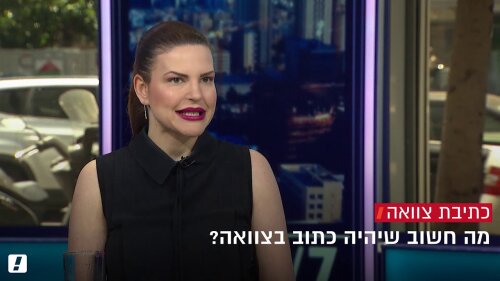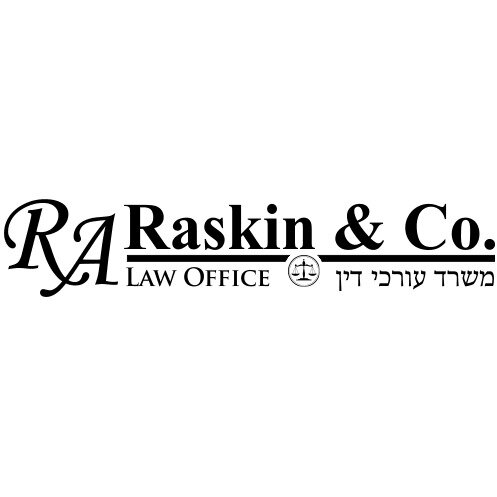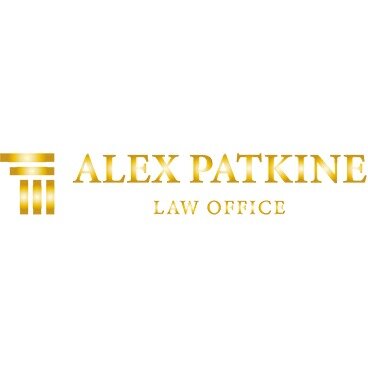Best Child Custody Lawyers in Haifa
Share your needs with us, get contacted by law firms.
Free. Takes 2 min.
Free Guide to Hiring a Family Lawyer
List of the best lawyers in Haifa, Israel
About Child Custody Law in Haifa, Israel
Child custody law in Haifa, Israel, is primarily guided by the principles set forth in the Israeli Family Courts. The governing laws address the welfare and best interests of the child as the paramount consideration in custody disputes. The courts may issue custody orders, visitation rights, and determine parental responsibilities. Additionally, the influence of both secular and religious courts can be seen in the formulation and execution of these laws.
Why You May Need a Lawyer
Situations where you may need legal help with child custody include:
- Divorce or separation: When parents decide to part ways, custody arrangements must be made.
- Disputes over visitation rights: When parents cannot agree on visitation schedules or conditions.
- Relocation issues: If one parent wishes to move to another city or country with the child.
- Modification of existing orders: When there is a substantial change in circumstances that warrants a review of the current custody arrangement.
- Enforcement of custody orders: If one parent is not adhering to the terms set by the court.
Local Laws Overview
Key aspects of local laws relevant to child custody in Haifa, Israel, include:
- Best Interests of the Child: The child's well-being is the primary consideration in all custody decisions.
- Parental Responsibility: Both parents are encouraged to remain actively involved in the child's life unless proven otherwise.
- Joint Physical Custody: Courts in Haifa often prefer joint physical custody arrangements that allow for substantial and frequent contact with both parents.
- Psychological Evaluations: In contentious cases, the court may order psychological evaluations to assess the child's needs and the parents' ability to meet them.
- Respect for Existing Arrangements: Courts typically uphold pre-existing agreements between parents, provided they serve the child's best interests.
Frequently Asked Questions
What factors do courts consider when determining child custody?
The courts consider several factors, including the child's age, emotional and physical needs, the ability of each parent to provide for the child, and the child's established routines and relationships.
Can custody arrangements be modified after they are set?
Yes, custody arrangements can be modified if there’s a significant change in circumstances that impacts the child’s welfare.
Is joint custody the norm in Haifa, Israel?
Joint custody is increasingly common, as it is generally believed to be in the best interest of the child to have ongoing contact with both parents.
What happens if one parent wants to relocate?
If a parent wishes to relocate, they must seek the court's permission. The court will evaluate the impact on the child and the existing custody arrangement before making a decision.
Do grandparents have any rights in child custody cases?
While grandparents do not have inherent rights to custody, they may petition for visitation rights, especially if they have a significant relationship with the child.
How are custody disputes resolved in Haifa, Israel?
Custody disputes are typically resolved through mediation and negotiation, but if these methods fail, the Family Court will make a determination.
Can a child choose which parent to live with?
The court may consider the wishes of a child, especially if they are older and can express a reasonable preference, but the final decision will always prioritize the child's best interests.
What is the role of a guardian ad litem?
A guardian ad litem is a court-appointed advocate representing the child's best interests in legal proceedings, often providing recommendations to the court.
What should I do if my ex-partner is not complying with the custody agreement?
If your ex-partner is not adhering to the custody agreement, you can file for enforcement through the Family Court, which may take measures to ensure compliance.
Do I need a lawyer for a custody case?
While it is possible to represent yourself, having a lawyer can provide legal expertise, negotiation skills, and representation to better navigate the complexities of custody law.
Additional Resources
For further assistance, the following resources can be beneficial:
- The Ministry of Justice (משרד המשפטים): Provides information and services related to family law.
- The Family Court (בית המשפט לענייני משפחה) in Haifa: Handles all legal matters related to family disputes, including child custody.
- Social Services: Offers support services for families in custody disputes.
- Non-Governmental Organizations: Various NGOs provide legal aid and counseling services for parents undergoing custody disputes.
Next Steps
If you require legal assistance in a child custody matter, consider the following steps:
- Consult a family law attorney who specializes in child custody issues and is knowledgeable about local laws in Haifa.
- Gather all relevant documentation, including any existing custody agreements, court orders, and records of communication between parents.
- Consider mediation as a first attempt to reach an amicable resolution before escalating the matter to court.
- Stay informed about your rights and responsibilities as a parent by researching or joining support groups.
- Prepare emotionally and mentally for court proceedings, if necessary, by seeking counseling or support from trusted individuals.
Taking these steps can help ensure that you are well-prepared to navigate the legal complexities of child custody in Haifa, Israel.
Lawzana helps you find the best lawyers and law firms in Haifa through a curated and pre-screened list of qualified legal professionals. Our platform offers rankings and detailed profiles of attorneys and law firms, allowing you to compare based on practice areas, including Child Custody, experience, and client feedback.
Each profile includes a description of the firm's areas of practice, client reviews, team members and partners, year of establishment, spoken languages, office locations, contact information, social media presence, and any published articles or resources. Most firms on our platform speak English and are experienced in both local and international legal matters.
Get a quote from top-rated law firms in Haifa, Israel — quickly, securely, and without unnecessary hassle.
Disclaimer:
The information provided on this page is for general informational purposes only and does not constitute legal advice. While we strive to ensure the accuracy and relevance of the content, legal information may change over time, and interpretations of the law can vary. You should always consult with a qualified legal professional for advice specific to your situation.
We disclaim all liability for actions taken or not taken based on the content of this page. If you believe any information is incorrect or outdated, please contact us, and we will review and update it where appropriate.















